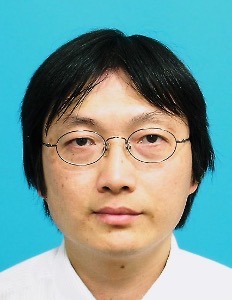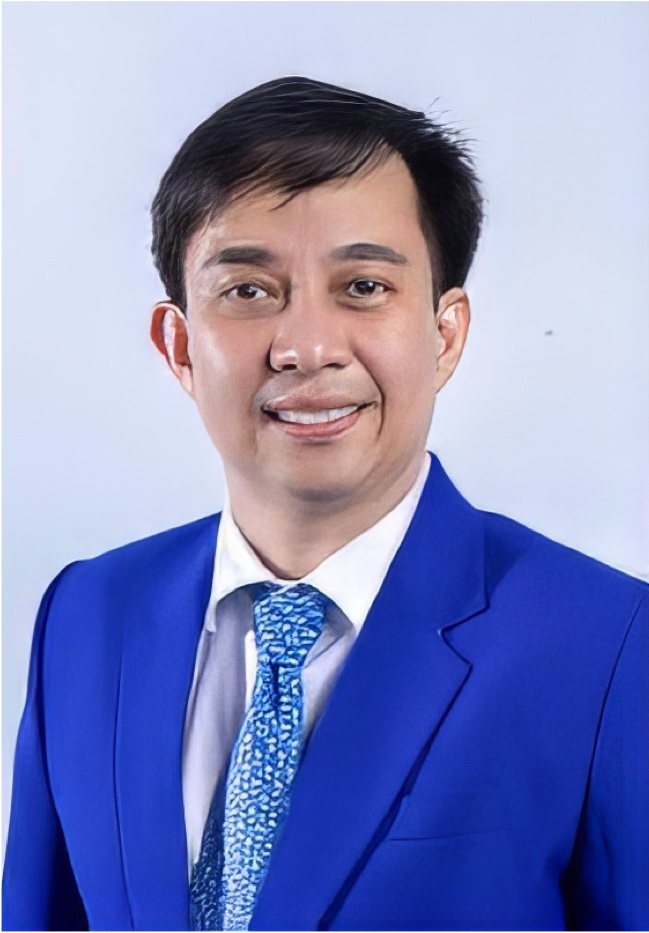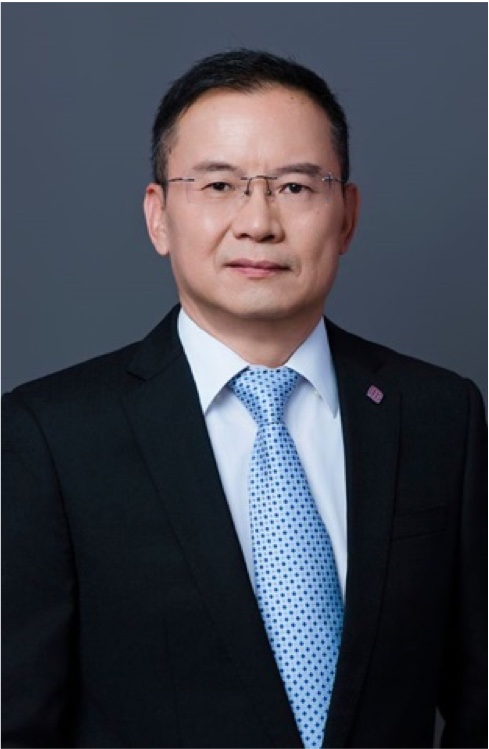Keynotes
Towards Active Inference for Distributed Intelligence in the Computing Continuum

Schahram Dustdar, Professor
Head of the Research Division of Distributed Systems at the TU Wien, Austria and part-time ICREA Research Professor UPF, Barcelona, Spain
Abstract: Modern distributed systems also deal with uncertain scenarios, where environments, infrastructures, and applications are widely diverse. In the scope of IoT-Edge-Fog-Cloud computing, leveraging these neuroscience-inspired principles and mechanisms could aid in building more flexible solutions able to generalize over different environments. A captivating set of hypotheses from the field of neuroscience suggests that human and animal brain mechanisms result from a few powerful principles. If proved to be accurate, these assumptions could open a deep understanding of the way humans and animals manage to cope with the unpredictability of events and imagination.
Biography: Schahram Dustdar is a Full Professor of Computer Science at the TU Wien, heading the Research Division of Distributed Systems, Austria. He holds several honorary positions: University of California (USC) Los Angeles; Monash University in Melbourne, Shanghai University, Macquarie University in Sydney, and University Pompeu Fabra, Barcelona, Spain. From Dec 2016 until Jan 2017 he was a Visiting Professor at the University of Sevilla, Spain and from January until June 2017 he was a Visiting Professor at UC Berkeley, USA. From 1999 – 2007, he worked as the co-founder and chief scientist of Caramba Labs Software AG in Vienna (acquired by ProjectNetWorld AG), a venture capital co-funded software company focused on software for collaborative processes in teams. He is the co-founder of edorer.com (an EdTech company based in the US) and co-founder and chief scientist of Sinoaus.net, a Nanjing, China-based R&D organization focusing on IoT and Edge Intelligence. He serves as Editor-in-Chief of Computing (Springer). Dustdar is the recipient of multiple awards: IEEE TCSVC Outstanding Leadership Award (2018), IEEE TCSC Award for Excellence in Scalable Computing (2019), ACM Distinguished Scientist (2009), ACM Distinguished Speaker (2021), IBM Faculty Award (2012). He is an elected member of the Academia Europaea: The Academy of Europe, as well as an IEEE Fellow(2016) and an Asia-Pacific Artificial Intelligence Association (AAIA) Fellow (2021) and was AAIA president (from 2020-2021).
Processing and Application of Physiological and Motor Signals in Assistive Robotics

Jinhua She, Professor
The Graduate School of Bionics, Computer and Media Sciences/Control Theory and Applications, Tokyo University of Technology, Japan
Abstract: Japan entered a super-aged society [percentage of old people (≥ 65 yrs old) ≥ 21%] in 2005. Nowadays, the aging problem in Japan is very serious. As a measure to cope with aging, research related to assistive robots has been widely carried out. In this talk, I will explain how we process physiological and motor signals and make full use of them to build control systems for the assistive robots we have developed, using examples of an electric trolley, a left-right independent treadmill, and a sit-to-stand assistive machine.
Biography: Dr. She received his B.S. degree in engineering from Central South University, Changsha, China, in 1983; and his M.S. and Ph.D. degrees in engineering from Tokyo Institute of Technology, Tokyo, Japan, in 1990 and 1993, respectively. In 1993, he joined the School of Engineering, Tokyo University of Technology, where he is currently a professor. Dr. She's research interests include the applications of control theory, repetitive control, active disturbance rejection, and assistive robotics. He has published more than 400 journal papers and 6 monographs. He received the IFAC (International Federation of Automatic Control) Control Engineering Practice Paper Prize in 1999 (jointly with M. Wu and M. Nakano), and was included in the list of Thomson Reuters' Highly Cited Researchers from 2013 to 2015 and World’s Top 2% Scientists since 2019. Dr. She is an IEEE Fellow, serves as an IEEE HI-TC Advisory Board member (2021-present) and an AdCom member of IEEE IES (2022-2024), was the Delegate of Cluster 4 of IEEE IES Technical Committees (2019-2021), and the chair of the Technical Committee on Human Factors (2017-2018). He is an Associated Editor of IEEE Transactions on Industrial Electronics, IEEE Journal of Emerging and Selected Topics in Industrial Electronics, and IEEJ Journal of Industry Applications, Journal of Advanced Computational Intelligence and Intelligent Informatics, and Intelligence & Robotics; and a Technical Editor of IEEE/ASME Transactions on Mechatronics.
Smart Cities Through Data Science and AI: Addressing Urban Growth, Migration, and Infrastructure Challenges

Christopher P. Monterola, Professor
Head of the Aboitiz School of Innovation, Technology, and Entrepreneurship (ASITE) of the Asian Institute of Management (AIM), Philippines
Abstract: Cities are the fundamental units of a country’s functioning, and in developing nations, building smart cities requires carefully curated infrastructure that aligns with local needs and available resources. This talk examines critical metrics often overlooked in urban growth planning and presents a simple, yet universally applicable agent-based mechanism to capture the emergent properties of growing cities. This approach is relevant to both developing and advanced economies, offering unifying insights into their seemingly complex dynamics. Additionally, the talk explores the interplay between migration, wealth movement, and urban development. While migration dynamics in advanced economies can be effectively modeled using the radiation model or by mathematically analyzing work opportunities and a region’s relative attractiveness compared to its neighbors, we demonstrate that low- to middle-income countries (LMICs) require a more nuanced approach. Factors such as education systems and local amenities must be mathematically incorporated into the radiation model to improve predictive accuracy. Furthermore, I will discuss the unique opportunities LMICs present in understanding causation principles within urban settings, particularly in areas such as pollution diffusion, traffic congestion, and the artificially inflated carrying capacities caused by intermittent tourism. I aim to demonstrate how data science and AI-driven approaches can be effectively used to formulate quantifiable policies that strike an optimal balance between cost-efficiency and urban convenience in rapidly growing cities.
Biography: Dr. Christopher Monterola is a well-published physicist, machine learning scientist, educator, and technology advisor. He holds the Aboitiz Chair in Data Science and is a full professor at the Asian Institute of Management (AIM), where he is the founding head of the Aboitiz School of Innovation, Technology, and Entrepreneurship (ASITE). He also leads the Analytics, Computing, and Complex Systems (ACCeSs) lab as Principal Scientist and Executive Managing Director. Chris has mentored over 200 data scientists and physicists, including 12 PhDs, across various sectors, both locally and internationally.
His Complexity Science and AI R&D expertise has driven multi-million-dollar projects in the Philippines and Singapore, benefiting enterprises, governments, and society. Beyond academia, Dr. Monterola serves as the Lead Independent Director at Xurpas ($X), a publicly listed tech company, and has been a key consultant in several Philippine companies' and government agencies' digital transformation efforts. He played a pivotal role in shaping the National AI Roadmap for the Philippines, serves on the EDCOM2 Standing Committee, and sits on the advisory committee for the Philippine Development Plan 2023–2028. In recognition of his accomplishments, Dr. Monterola was conferred the rank of Academician in 2020 by the National Academy of Science and Technology (NAST), the highest recognition and scientific advisory body of the Philippines. As an academician, he is a lifelong advisor to the President and government on science and technology matters.
KCUBE - A Knowledge Graph University Curriculum Framework for Student Advising and Career Planning

Qing Li, Professor
Head of the Department of Computing, the Hong Kong Polytechnic University, Hong Kong
Abstract: Knowledge representations and interactions are at the forefront of teaching, learning, and career planning activities in all endeavors of education and career development. University students are increasingly faced with a myriad of interdisciplinary topics that are seemingly unrelated when unstructured knowledge representations are presented, especially during advising and career orientation sessions. This is especially challenging in fast-changing technical domains such as Computer and Data Science where university curricula are reviewed on an annual basis. This makes it increasingly difficult for instructors and administrators to present both the big picture as well as the detailed knowledge components of degree programs to students when choosing a career or establishing a plan of study and assessment. This paper introduces the KCUBE project, a virtual reality knowledge graph framework for structuring and presenting both the overall view of the Computer Science curriculum taught in the Department of Computing at the Hong Kong Polytechnic University as well as the scheduling alternatives in managing course content and presentation views by instructors and students. We employ computational information storage and retrieval methods, machine learning, and interactive virtual reality to better understand, manipulate, and visualize abstract concepts and relationships in the development of teaching and learning activities in our department.
Biography: Qing Li is a Chair Professor and Head of the Department of Computing, the Hong Kong Polytechnic University. He received his B.Eng. from Hunan University (Changsha), and M.Sc. and Ph.D. degrees from the University of Southern California (Los Angeles), all in computer science. His research interests include multi-modal data management, conceptual data modeling, social media, Web services, and e-learning systems. He has authored/co-authored over 500 publications in these areas, with over 41,000 citations and H-index of 83 (source: Google Scholars). He is actively involved in the research community and has served as Editor-in-Chief of Computer & Education: X Realitty (CEXR) by Elsevier, associate editor of IEEE Transactions on Artificial Intelligence (TAI), IEEE Transactions on Cognitive and Developmental Systems (TCDS), IEEE Transactions on Knowledge and Data Engineering (TKDE), ACM Transactions on Internet Technology (TOIT), Data Science and Engineering (DSE), and World Wide Web (WWW) Journal, in addition to being a Conference and Program Chair/Co-Chair of numerous major international conferences. He also sits/sat in the Steering Committees of DASFAA, ER, ACM RecSys, IEEE U-MEDIA, and ICWL. Prof. Li is a Fellow of IEEE, AAIA, and IET.